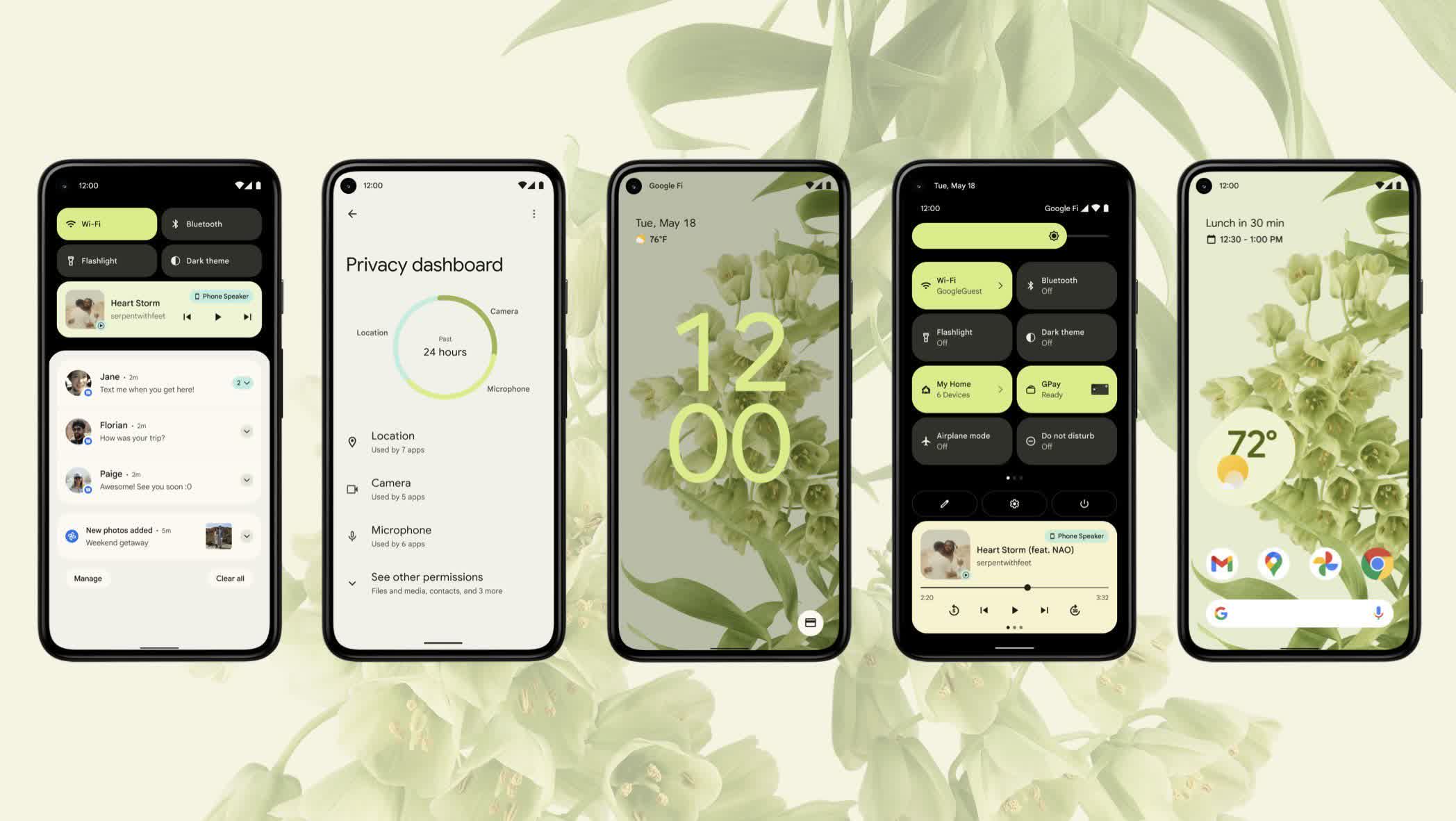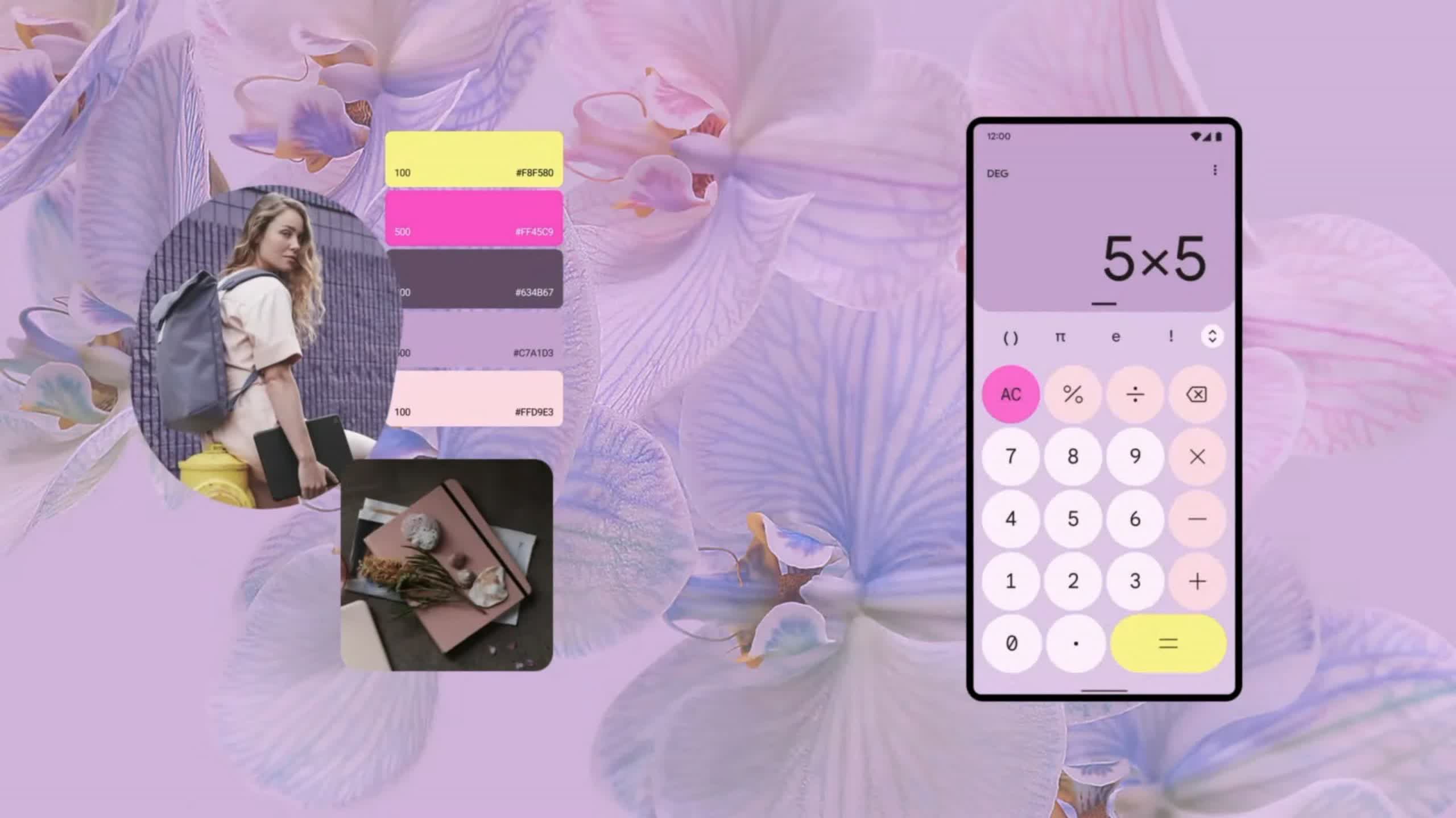Something to look forward to: An upgrade for Android's aesthetic has long been overdue, and you won't have to wait much longer to see it. Google's upcoming update to its operating system has officially exited its beta phase, with a release finally due in the "next few weeks."
On Monday, Google uploaded the source code for Android 12 to the Android Open Source Project (AOSP). Pixel devices will be the first to receive it sometime in the "next few weeks." Other OEMs like Samsung and OnePlus will release the latest iteration for their devices later this year.
More than 225,000 people tested the various beta releases of Android 12, culminating in nearly 50,000 issue reports that helped the company improve the final build.
Android 12 features "the biggest design change in Android's history," and Google certainly put weight behind that statement by developing a slew of features for its new user interface. They include Material You---a new design language---redesigned widgets, notification UI updates, stretch overscroll, and App launch splash screens.

"Material You seeks to create designs that are personal for every style, accessible for every need, alive and adaptive for every screen," said Google. Ambitious, no doubt, but as the flagship feature of the UI overhaul, it had no other option but to be innovative. The company said, "[It's a] multiyear journey that will evolve all of Google's products and ecosystems."
With Material You, Google sought to "mix color science with years of investment in the disciplines of interaction design and engineering to make it possible to tailor any app---not just Google's---to the user's unique Material palette in real-time." A user's wallpaper will directly influence various segments of the UI like the notification center and apps, essentially allowing itself to change colors.
Beyond the new design features, performance enhancements include more responsive notifications, optimized foreground services, and faster, more efficient system performance. Google has reduced the CPU time used by core system services by 22%, while big core usage has decreased by 15%. Android 12 will also improve app startup times, accompanied by optimized I/O for loading applications faster.

On the privacy front, Android 12 incorporates Privacy Dashboard, which "will provide a clear and simple overview of app accesses to the device location, microphone, and camera over the past 24 hours." Users have more control over their location data, too. New indicators in the status bar will allow users to see when an app is using the device's camera or microphone in real-time. A good call as malware threats continue to increase.
Improved user experience tools aim to increase productivity with rich content insertion, new APIs to support rounded screen corners, new camera effects, sensor capabilities, and enhanced haptic experiences. Compatible media transcoding, AVIF image support, and better debugging for native crashes have also been added.
With the Pixel 6 most likely launching on October 19, Android 12 could see a simultaneous release. Either way, Google added that Android 12 would be further detailed at the Android Dev Summit on October 27.
